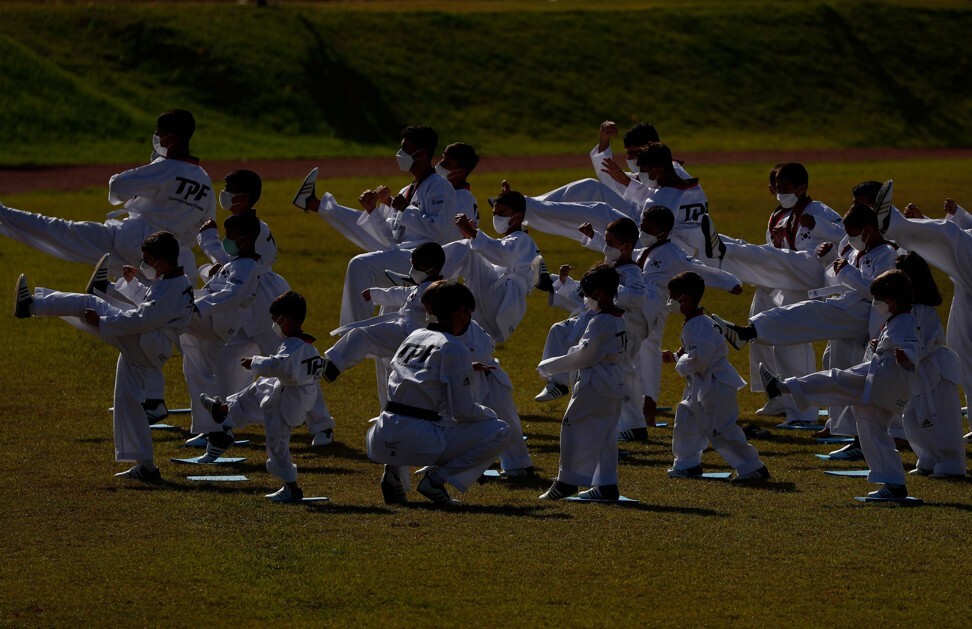
Afghan children in South Korea welcome new life away from war and restrictions
- Girls can now freely participate in activities like taekwondo, while other children say it is the first time they have had a war-free life
- Almost 400 people were evacuated to South Korea in August, and are now undergoing a social integration programme to help them adjust to Korean society
“In Afghanistan, you can’t do activities as freely as men do,” one young girl told reporters after a taekwondo class on Wednesday. “It’s satisfying to do taekwondo without a hijab in Korea right now.”
A boy at the class said he had never known a war-free life until his family fled Afghanistan.
The children were not identified by age or name under an agreement with South Korean government officials, who organised the interviews with foreign media to show how they were adjusting to life in markedly different surroundings.
The refugees are currently staying at temporary housing facilities in Jincheon, a rural county about 90 kilometres southeast of Seoul, as they undergo a “Social Integration Program” aimed at helping them to lead an independent life in the country and to understand the basic laws needed to adjust to Korean society.
I will regard South Korea as my home country and work hard to be helpful to South Koreans
The facilities house 156 adults and 235 children, including 40 infants, according to the ministry. After completing the programme, which includes Korean-language lessons, the refugees are expected to move into local communities.
“I’d like to obtain permanent residency in South Korea,” one boy said. “When I do, I will regard South Korea as my home country and work hard to be helpful to South Koreans.”
A teacher at the programme said there were a range of classes for the group.
“We are teaching basic rules of living, like recycling and financial matters as well as gender equality to bridge the gap between Afghan culture and Korean culture,” one teacher said.
She added that most of the Afghan men had shown interest in topics such as the economy, wages, jobs and housing prices, while women were keen to know more about education for their children.
One Afghan man acknowledged that adjusting to the South Korean language, culture and customs would take time, but that all the evacuees were willing to try hard to adjust with government support.
“If we work hard here … we can solve all the problems we would face in the future and settle down properly in South Korea,” he said, speaking in English.




